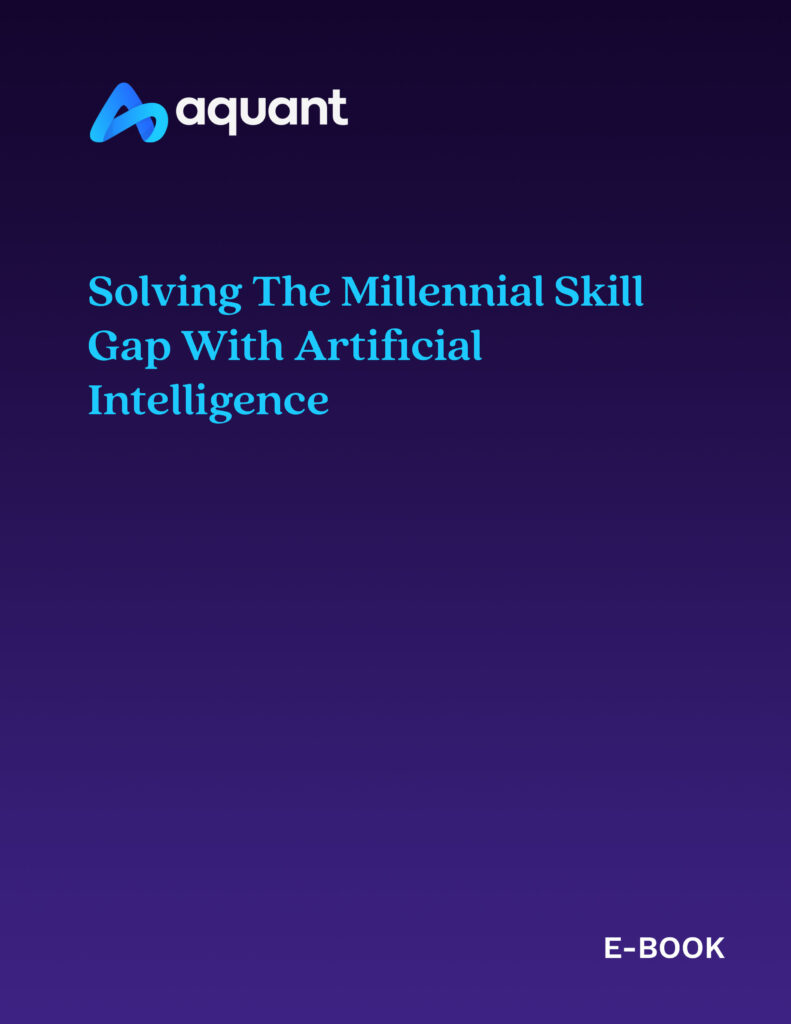Solving the Field Service Skill Gap with AI
Field service teams are in flux. The existing drain to the workforce brought on by a deluge of retiring Baby Boomers combined with an unsteady economy is creating unprecedented service and performance challenges.
In this series of excerpts from a new White Paper published by Aquant, we explore how Artificial Intelligence can pave the way to overcoming these challenges for field service organisations…
Even in an uncertain environment, there are cost-effective ways to ensure continuity of service. Adopting AI-driven field service technology will allow your service organization to pivot quickly and help erase the skills gap.
By capturing untapped tribal knowledge and making that insight accessible across your workforce, the technology will empower less tenured employees with the wisdom of your experts. The results are quicker, more comprehensive training for new hires, increased job satisfaction, and ultimately, a better customer experience.
Where to Find the Next-Generation of Field Service Professionals
Service teams are in a labor crunch.
According to 2018 global research by Manpower Group, skilled trade positions, particularly technicians and engineering roles, are the hardest to fill. This didn’t happen overnight. The Service Council detailed the coming storm in the labor market in 2015 research, noting that “70% of service organisations indicate they will become burdened by a retiring workforce over the next five to ten years.”
We are in the midst of that talent shortage and organisations are scrambling to fill openings, with more than 70,000 service technician jobs listed across the country. Baby Boomers, who make up a significant majority of the workforce in the service industry, are now retiring. In the next ten years about 10,000 Boomers a day (across all industries) hit retirement age.
That’s a lot of farewell parties.
Analysts and economists have been sounding the alarm bells for years about the coming crisis, but many companies have struggled to pivot quickly. While Millennials now make up the largest portion of the workforce overall, the service industry has struggled to attract and retain the digital generation, due in part to housing shifts from the suburbs to the city, and the large number of millennials who hold bachelor’s degrees compared to a generation ago.
While the majority of customer call centre and field service jobs don’t require a college degree, the jobs do offer many qualities that young talent are seeking, such as room for advancement and a sense of purpose. In order to recruit and retain young employees, an emphasis on professional development is crucial.
Don’t Let You’re Field Service Expertise Leave with Your Retiring Technicians:
In addition to contributing to the labor crunch, retiring boomers are exacerbating the knowledge gap in service. Unlike other industries where institutional knowledge is indexed, best practices documented, and lunch and learns held monthly with pizza, technicians often work solo or have limited interactions with other team members.
In lieu of imparting tips and tricks, technicians often keep knowledge of a myriad of parts, fickle machines, and client quirks tucked away in their head or scribbled down on paper work orders that fill desk drawers and glove compartments.
There’s also an employment tenure gap between generations, which is causing more turnover overall. 2016 research found the overall average employee tenure across all industries and age groups to be 4.2 years.
Millennials average roughly 3 years and Gen X average tenure is 6.5 years. Boomers have an average tenure of 10 years, but most are at or close to retirement age.
Even if you could hire more Millennials, the knowledge drain is forecasted to continue as the pace of churn quickens.
Indeed, the challenges around finding balance within the field workforce is becoming increasingly difficult as we navigate this demographic shift.
However, it is not impossible and emerging tools such as Artificial Intelligence can really come to the fore in overcoming these challenges, which we shall begin to explore in the next feature within this series.
This white paper is currently available exclusively to all FSN PRO members. Subscribe today to have instant access our industry-leading library with over 130 resources, 70+ hours of in-depth conversation and our FSN Education Masterclass courses.

![]() Data usage note: By accessing this content you consent to the contact details submitted when you registered as a subscriber to fieldservicenews.com to be shared with the listed sponsor of this premium content Aquant who may contact you for legitimate business reasons to discuss the content of this white paper.
Data usage note: By accessing this content you consent to the contact details submitted when you registered as a subscriber to fieldservicenews.com to be shared with the listed sponsor of this premium content Aquant who may contact you for legitimate business reasons to discuss the content of this white paper.


